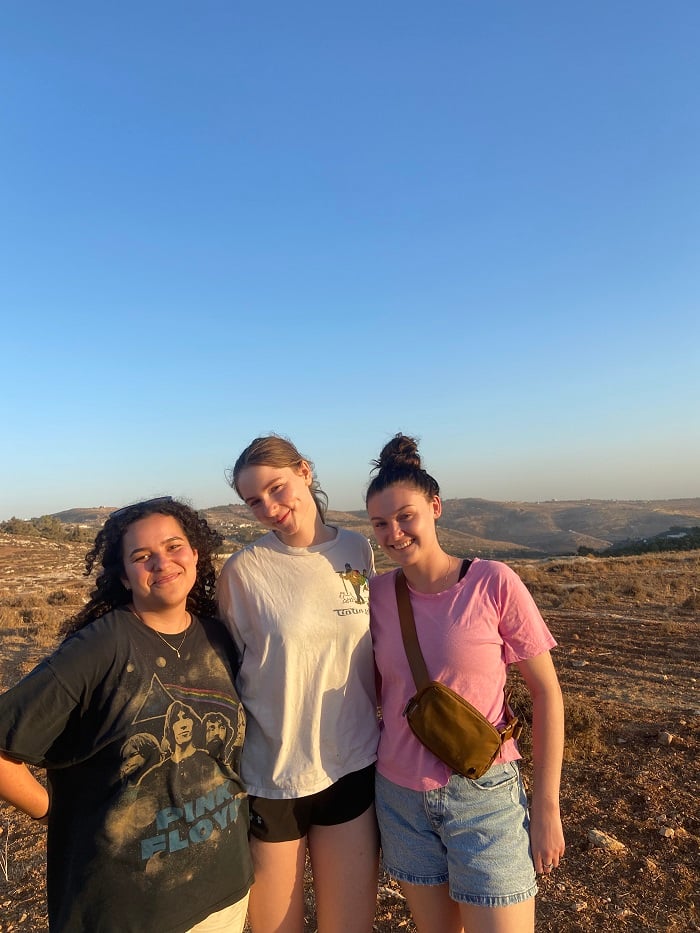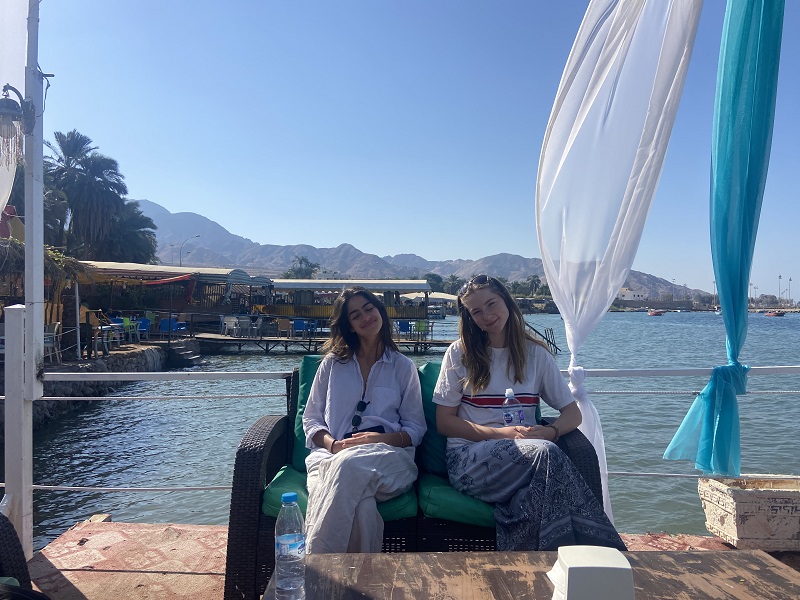Written by Emily Griffith, (University of Missouri), Student Correspondent for CET Jordan, Fall 2022
Growing up in the United States, I have always identified with my femininity, but I haven’t always been particularly aware of it. Although I have encountered my fair share of misogynistic and sexist experiences, I have generally had the privilege of being treated largely as an equal by the men in my life, a blessing that I have not always recognized. But in Jordan, I have found my new status as “Western woman” a new and complex identity to navigate in terms of dress, interpersonal connections, and my previous conceptions of myself and other women.
Traveling to a more conservative country such as Jordan, you have to expect a certain degree of culture shock in terms of how women are treated. Before I left, I thought that if I dressed appropriately and didn’t draw attention to myself, I would go unnoticed. Unfortunately, I have not found that to be the case, and I believe it is extremely important for female-identifying individuals considering this program to be aware of what to expect and how to stay safe in Amman.

While dressing modestly and attempting to not draw excess attention to myself definitely reduces the amount of harassment I get, it does not entirely deter some men. On our ten-minute walk to class, I can expect at least one man to make a comment towards me on the street. These comments are not necessarily vulgar, but they can be unnerving when walking alone in a new city. It is important to consider that this behavior is fairly normal here, although certainly not encouraged. Most of the harassment we receive is verbal and typically harmless, but still unnerving, nonetheless.
Covering shoulders, knees, and stomachs is crucial when walking around in most areas of Amman. It is certainly acceptable to wear Western clothes (and for young people, is often the norm), but as foreigners, we already draw a good amount of attention. For some local women, dressing modestly is not necessarily a requirement due to their social status and the protection provided by their family and tribe. Potential harassers are careful not to offend a woman’s family, but as foreigners, we do not have such familial ties to defend our honor. I firmly believe that whether a woman chooses to wear a hijab, burka, or a mini skirt, it does not justify any type of harassment or discrimination, in either Jordan or in the United States. But overall, I have found dressing more conservatively to be necessary. Unfortunately, there is no fool-proof dress code to avoid harassment, but loose-fit clothing has been the best deterrent in my experience.
Our skin color, language, and overall demeanor are dead giveaways for our status as foreigners. To some men in Amman, Western women are stereotyped as “loose” and “easy,” making us ideal targets for their attention. I have found that the best way to avoid this stereotype is to ignore their advances and avoid eye contact, particularly with dark sunglasses.

In terms of identity, gender has never previously been an aspect of my individuality that particularly resonated with me. Since moving to Amman, however, I have felt a new level of solidarity with women as a whole. We have this shared experience of misogyny that allows us to bond on a deeper level regardless of our other identities.
While it is sad that it takes such degrees of harassment to bring about this solidarity, to me it has almost been a strange gift. I feel as though I understand the female experience on a deeper and more intersectional level than ever before.
So if you are a woman considering traveling to Jordan, whether it is with CET or otherwise, I would recommend that you prepare for harassment. However, try to use it as a lens through which to observe our own preconceptions about conservatism in Jordan, as well as a reflection on our own Western society. I say all of this not to justify the behaviors of these men, but to illustrate the ways in which I have had to adapt to the culture during my time here.